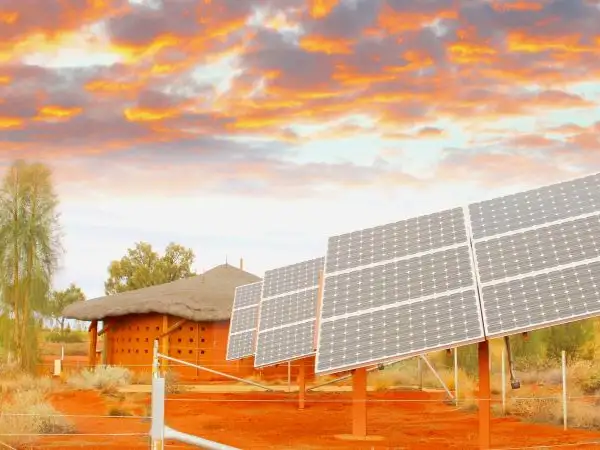CAFOD's policy team provides briefings, reports and research on our advocacy and lobbying work, plus materials to support our campaigns.


Solar panels for electricity generation in Africa. Photo credit: Shutterstock
Burning polluting fossil fuels is the main cause of the greenhouse gas emissions causing climate change, which is hitting the poorest communities hardest. Phasing out investment in fossil fuels and scaling up support for renewable and efficient energy systems to reach 100 per cent by 2050 will be critical for remaining under 1.5°C of global warming.


Access to modern energy can also play a key role in delivering other sustainable development goals (SDGs), including those on health, education, inclusive economic development and gender equality, as well as wider environmental sustainability. SDG 7 aims to ensure universal access to affordable, reliable, sustainable and modern energy by 2030. Billions of people still do not have access to electricity or cook with polluting solid fuels. Indoor air pollution can have devastating health impacts, particularly for women and children.
Eighty-seven per cent of people without electricity live in rural areas, far from centralised electricity grids, in what is called the ‘last mile’. A least-cost assessment indicates that for them to access electricity, over two-thirds of investment should be in distributed (off-grid and mini-grid) solutions powered by renewable energy (DRE).
Currently there is a financing gap for energy access, and particularly for DRE and clean cooking solutions. International public finance from donor countries like the UK has a vital role to play in plugging this gap and in supporting poorer countries to shift or leapfrog to renewable and efficient energy systems that benefit everyone, including the world's poorest people.
Since 2016, CAFOD in collaboration with the Overseas Development Institute (ODI) has analysed UK public support for energy overseas to see if it is aligned with the UK’s climate change and development goals. Our latest research using an updated methodology analyses UK support for energy overseas in the period 2010–11 to 2017–18. This includes the years after the UK’s adoption of the Paris Agreement and the SDGs in 2015.
Our latest reports on UK support for energy overseas
Key findings
Between 2010 and 2017, the UK provided support for energy overseas with a total value of £7.8 billion.
60% of the UK’s support for energy overseas in this period was for fossil fuel energy.
An estimated 97% of UKEF support went to fossil fuel development, principally oil and gas exploration and production in upper-middle-income countries.
Between 2010 and 2018, more Overseas Development Assistance (ODA) & Other Official Flows (OOF) support for energy went to renewable energy (32 per cent) but over a quarter of support (27%) went to fossil fuel development (19% of ODA support).
Between 2010 and 2018, only 10 per cent of ODA/OOF support went to energy access for poor groups.
Between 2010 and 2018, the amount of ODA/OOF support for energy access increased, but did not keep pace with the rate of increase in total ODA/OOF energy support, which was considerably higher.
CDC support
CAFOD, in collaboration with BOND, has also analysed in detail UK support for energy overseas channelled through CDC, the UK’s development finance bank. The analysis shows that CDC is investing hundreds of millions of pounds in fossil fuels overseas, undermining its new Climate Change Strategy and the UK’s international leadership on tackling climate change.
Recommendations
Place a moratorium with immediate effect on any new UK Overseas Development Assistance (ODA) investments in fossil fuels at all stages of energy delivery and through all channels, including indirect investments by the Commonwealth Development Corporation (CDC).
Review any existing fossil fuel investments, using a transparent methodology. Where there is an overwhelming business case that energy investments are needed for poverty reduction, alternative low-carbon energy investments should be identified. The results of this review should be announced by COP25 in December 2019.
Commit to end UK Export Finance (UKEF) support to fossil fuel projects by 2021, following the Environmental Audit Committee (EAC) recommendation and building on the UK’s leadership in the Powering Past Coal Alliance.
Undertake a strategic review of current UKEF energy support including consideration of appropriate support for a just transition for workers and communities at home and abroad who may be affected by a phase-out of UKEF fossil fuel support. The results of the review and the phase-out plan to be announced before COP26 in December 2020.
Scale up significantly energy access as a proportion of UK energy support to help meet the current access financing gap.
Focus support on those countries with the largest populations living without access to clean cooking or electricity – the ‘high-impact countries’ (HICs).
Prioritise investments in DRE and clean and efficient cooking fuels and technologies as the least-cost solutions for the most energy-poor people.
Provide more support for research and demonstration of effective financing and business models, enabling policies and integrated and inclusive planning and delivery to scale up energy access for poor and vulnerable groups.
Going forward, adopt a ‘whole-portfolio’ investment approach to ensure UK energy support via all channels, both ODA and non-ODA, is fully aligned with achieving net-zero emissions by 2050 and with implementing the SDGs.
Adopt a clear and consistent screening process for individual energy investments, with robust safeguards for mitigating climate, environmental and social risks and mandatory human rights due diligence for companies seeking export finance. This should apply to indirect investments, such as those made by CDC, as well as to direct investments, with transparent reporting on impacts, including for energy access impacts
Resources for the 2018 update
CAFOD policy and advocacy
Research into CDC’s energy investments overseas shows that it is investing hundreds of millions of pounds in fossil fuels.



